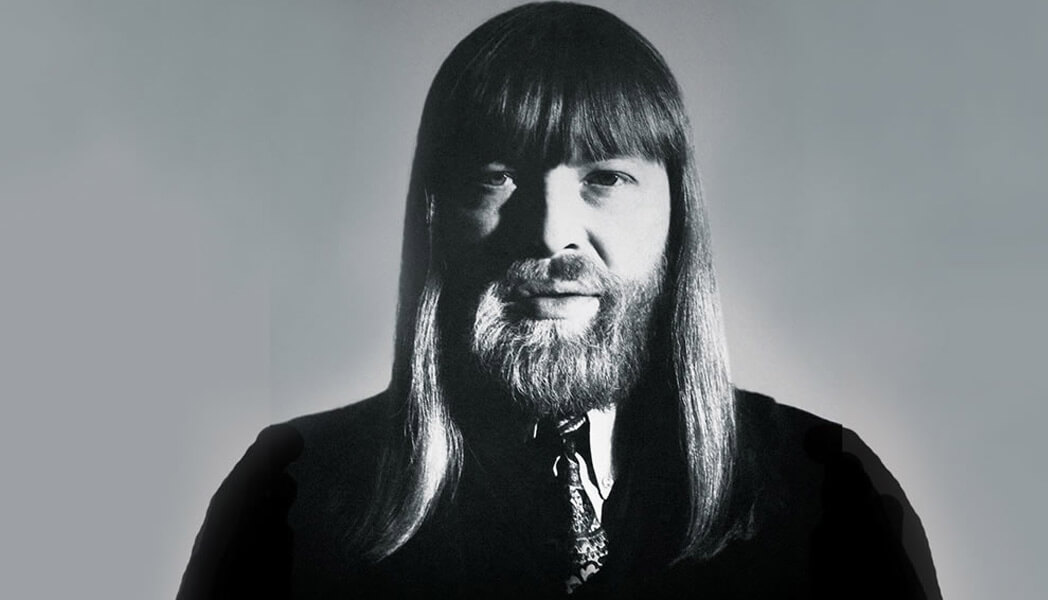Stephan Plank is in his mid-forties and is effectively an orphan.
His father, legendary German record producer Conny Plank, died in 1987 when Stephan was just 13. His mother Christa was Conny’s major support network (his analogue partner as Stephan called her) and she died in 2006. Stephan had to sell Conny’s mixing desk to pay for her brain operation.
![Music2_0[1].jpg](https://blackcountryrock.co/wp-content/uploads/2018/08/music2_01.jpg?w=432&h=525)
In his new film, The Potential of Noise, Stephan has embarked on a quest to establish more about Conny, this revolutionary musical figure. In doing so, he has revealed more about Conny’s role as a father, Christa’s role as the bedrock of the studios. He has also understood more the family dynamic, via the observations from the musicians he spoke to. Stephan’s own partner and children are recurring presence in the movie, another, different type of unit.
Christa came across as a particularly strong matriarchal character. There was one particular story that Stephan told at Kensington’s Goethe Institute which captured her personality that doesn’t appear in the film, paraphrased as follows.
Killing Joke had just got kicked out of Hansa Studios in Berlin for trashing the mixing desk. Christa was paranoid that they would do the same in Cologne. She came up with a ruse to assert her authority and bolster her image as someone not to be messed with. She breakfasted on raw steak with the band. It convinced them that she was beyond fearsome and henceforth they behaved like schoolboys.
There are two particular interviews that stick out in describing how the musicians who worked at Plank’s studio complex in farmlands outside of Cologne.
The first interview is with Can’s recently departed Holger Czukay who felt that Conny absented himself from parenting whilst working. You can see Stephan briefly shaken as he computes Czukay’s critique on screen. In the post-film Q&A with Can biographer Rob Young, Stephan commented that he didn’t necessarily align with Holger’s view and felt that he was describing Conny’s pure focus on the job in hand rather than some form of parental neglect.
The second interview is with hip-hop pioneers Whodini. The duo had barely left New York before when they travelled to Germany. Their expectations were to be recording in a futuristic Germanic city environment. When they arrived at Conny’s farmhouse with swings in the garden and animals roaming the grounds, they were taken back. However, they were charmed by the Plank family and they described the experience thirty years later as being one of the best of their lives.
![Music3_0[1]](https://blackcountryrock.co/wp-content/uploads/2018/08/music3_01.jpg?w=800)
It was clear that when meeting Stephan in making the film they saw the son but they were also seeing the father. There was a striking physical similarity between Stephan and Conny. Having Stephan in the shot when interviewing brought another emotional dimension to the movie, the years falling away in front of your eyes.
Plank’s production technique was vindicated by many of the musicians interviewed. From the more popular musicians such as Ultravox’s Midge Ure and Eurythmics’ Dave Stewart through to the influential DAF and Neu, it was clear that Conny’s desire was for the musicians to be true to themselves and innovate. He thought cinematically and had no time for prescriptive requests for him to make a band sound like a particular artist.
There were a couple of notable absentees. Brian Eno and Stephan’s diaries didn’t align but Eno is contributing to a forthcoming book. I won’t name the other no-show, save to add no one appeared on film from Germany’s most famous and influential band.
Stephan was asked for his most notable musical memories from the studio – real life stuff rather than the box of LPs containing his father’s work.

His earliest memory was standing in his cot and hearing Neu’s Isi. The song reappeared in the film (as did much of the Neu! 75 LP), its driving backbeat providing a motif for Stephan’s frequent travelling to meet his interview subject’s from Neu in Los Angeles to Whodini in Atlanta and those collaborators still living in Germany.
The other recollection was him being in the garden playing on the large rock that his father had deposited and hearing Ultravox’s Vienna for the 700th time as it was being recorded, remixed and reworked. The song was massive in the UK but not making to the number one slot in the aftermath of John Lennon’s murder and Joe Dolce’s Shaddap You Face. Singer Midge Ure recalls Conny wanting the piano to sound like it was being played by a pianist who was old and tired and had been waiting 40 years to perform his part. He nailed it.
From its initial edit of over four hours, it has been distilled to just an hour and a half or so of snappy film-making. During that time there’s a dig at U2’s “Mr Bono” and diversions into the more Europop elements of Conny’s work.
It works brilliantly though and conceivably could be a cornerstone to a BBC4 Friday night evening of German music. Whilst Conny’s work was occasionally in the esoteric end of German music in the 70s, he quickly moved to the popular domain in the 80s and the human aspects of the film would stand up to the wider more general consumption. Stephan encouraged the audience to canvas their local cinemas to show the movie.
There are books and box sets to follow but in the meantime, I’d wholeheartedly recommend Stephan Plank’s film to anyone with an interest in 70s and 80s music.
